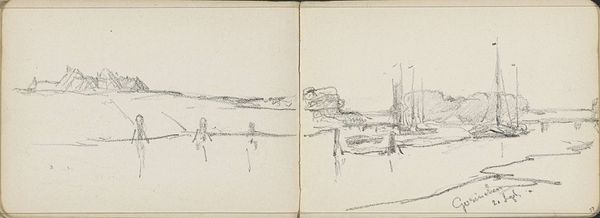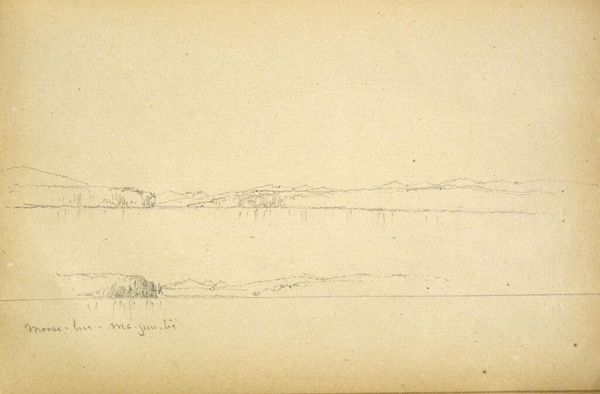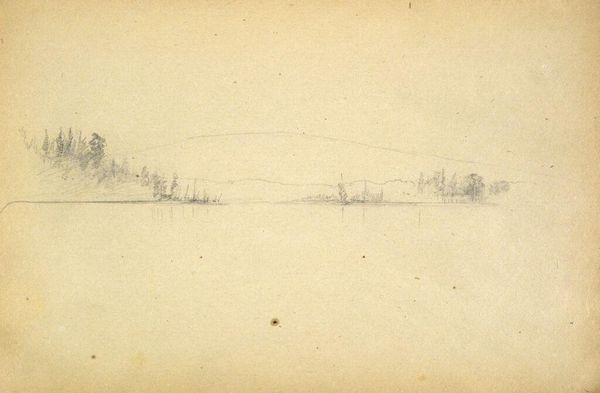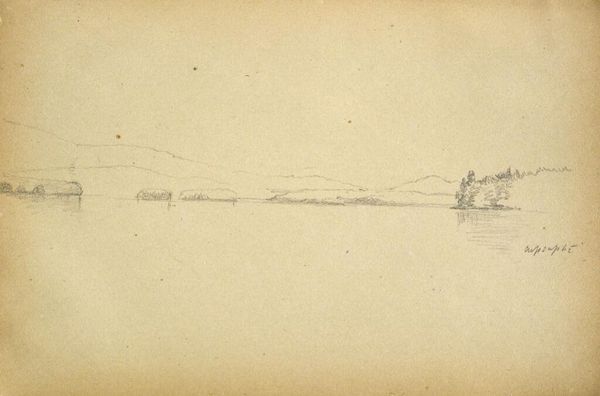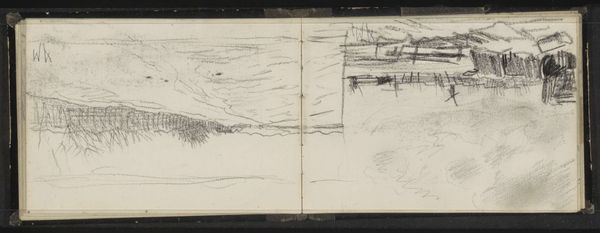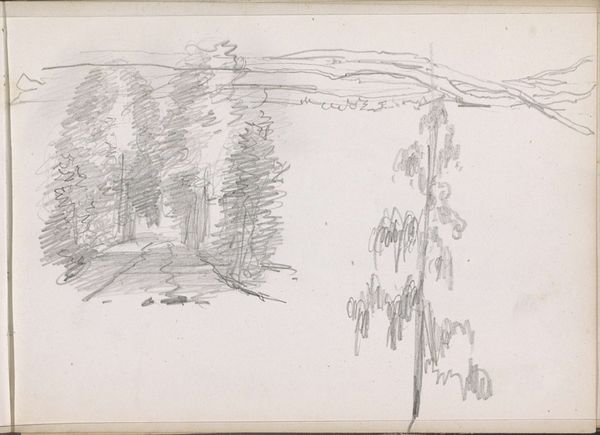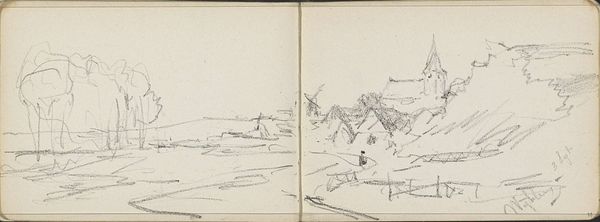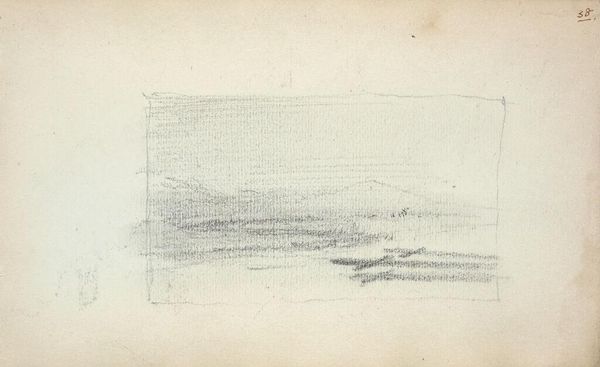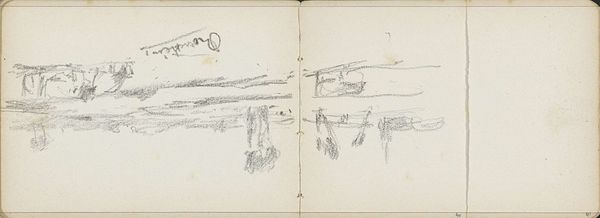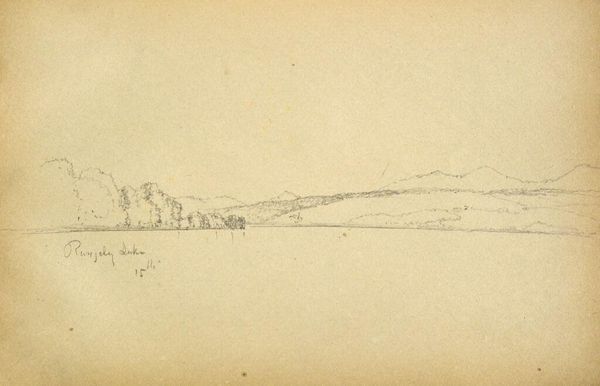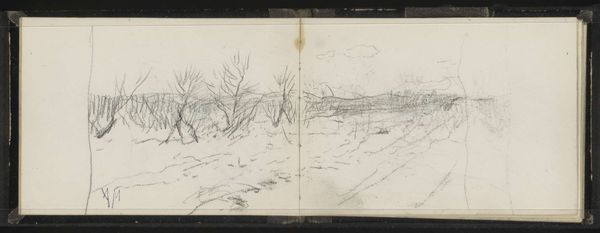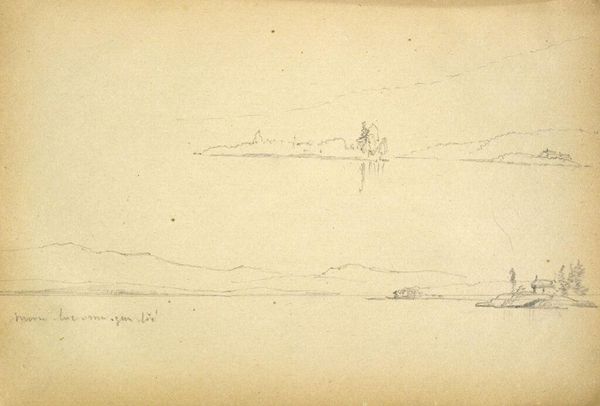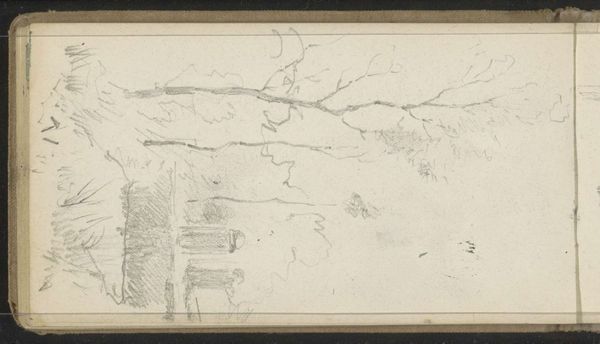
drawing, pencil
drawing
light pencil work
sketch book
hand drawn type
landscape
personal sketchbook
idea generation sketch
sketchwork
pen-ink sketch
pencil
pen work
sketchbook drawing
sketchbook art
Copyright: Rijks Museum: Open Domain
Curator: This is "Gezicht op een haven," or "View of a Harbor," a pencil drawing from around 1919 by Isaac Israels, housed here at the Rijksmuseum. Editor: Immediately striking, isn’t it? The almost stark simplicity evokes a sense of quiet, perhaps a contemplative pause at the edge of industry. Curator: Indeed. The composition relies heavily on line. Look at how Israels uses hatching to build form, particularly in the cluster of masts and sails on the right page. It’s all about suggestion, leaving so much unsaid. Editor: It feels like witnessing the industrial revolution beginning to show it's cracks after the devastation from The Great War; an industrial view devoid of vitality with almost erased lines, hinting at social upheaval and change. I’m thinking of the post-war atmosphere and Israels’ own positioning as an artist of the establishment grappling with those societal shifts. Curator: Interesting, because the sketch-like quality is precisely what interests me from a formalist standpoint. Israels isn't presenting a polished view but revealing the essence of form through these minimal strokes. The emptiness on the left page becomes as important as the depiction on the right. A study in contrasts. Editor: But isn't the very act of selecting this "essence" also imbued with the artist's ideology? The choice to highlight a dormant harbor rather than the bustling activity surely signifies a certain… ambivalence? Curator: I'd argue that it transcends mere political sentiment. Israels concentrates on the fundamental relationship between the elements: line, space, and the page itself. This skeletal form of a harbour becomes universal because of it. Editor: Perhaps we read different things into it because of what we prioritize. I feel drawn to explore how this drawing reflects and refracts the period's socio-economic realities. The empty space for example suggests alienation in what once stood for industry. Curator: Ultimately, the power of "Gezicht op een haven" lies in its ability to elicit such varied and engaging interpretations. Whether through its formal economy or its potential societal resonance, it’s a remarkable piece. Editor: Precisely, and by engaging with the historical context of societal discord as much as we do its aesthetics, we grant Israels work another rich, valuable life.
Comments
No comments
Be the first to comment and join the conversation on the ultimate creative platform.
